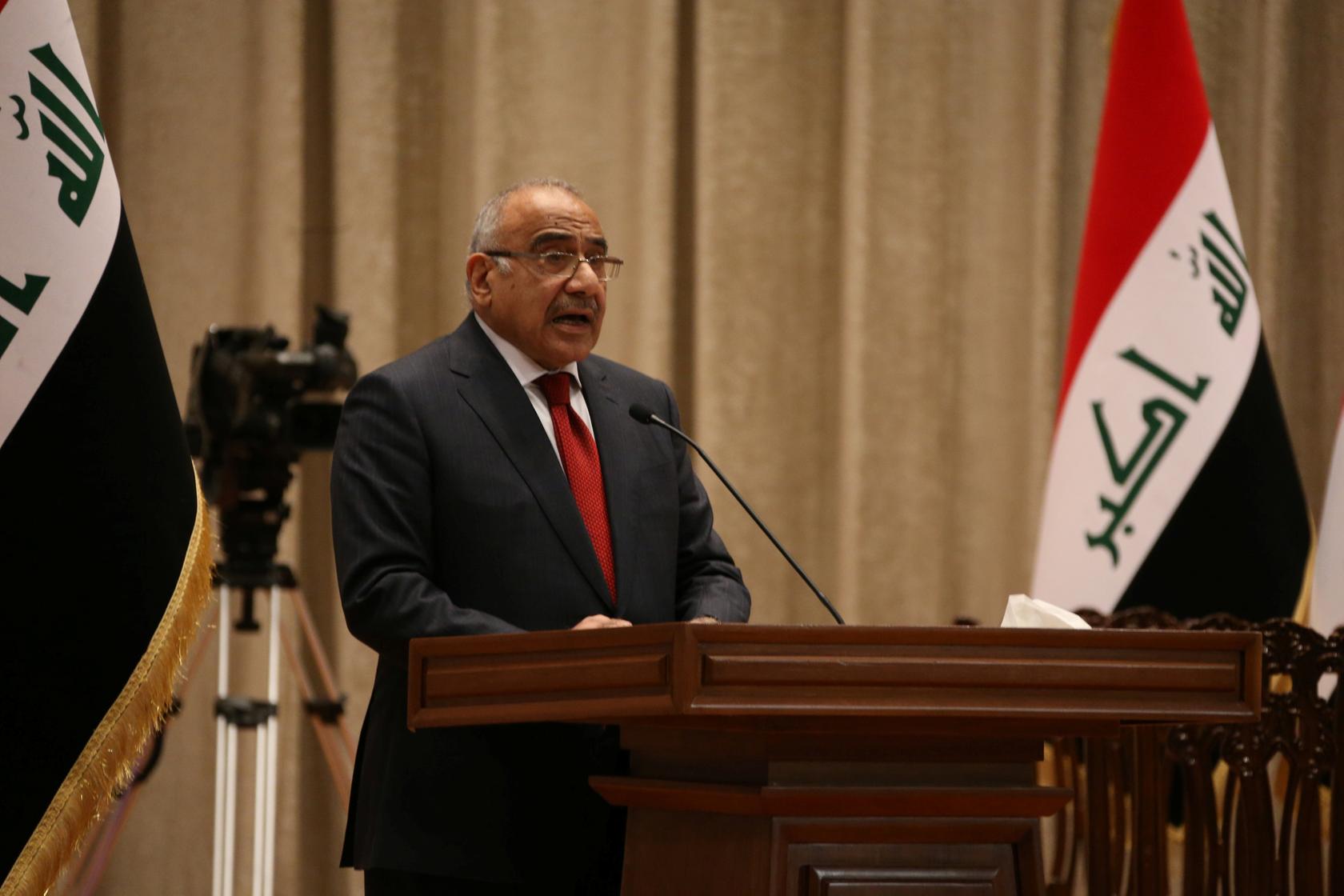Lessons from Lebanon as Iraq’s PMU plan fails

On July 1, Iraqi Prime Minister Adel Abdul-Mahdi issued a surprise decree to compel the Popular Mobilization Units (PMU) — a coalition of predominantly Shiite militias — to join the government’s armed forces and to sever all “political and organizational ties” with non-state actors.
Observers, particularly those with an excess of conventional wisdom, cautioned against this, believing it would allow Iran to insert fifth columnists into Iraq’s armed forces and expand Tehran’s influence inside Iraq. Well, they might have saved their breath because the integration hasn’t happened. The PMU remains free of Abdul-Mahdi’s influence; free to cause mischief in Iraq at the behest of its masters in Tehran. Indeed, the failure to bring the PMU under Iraqi sovereignty is exacerbating the proxy battles being fought on Iraqi soil.
One recent incident illustrates this starkly. When drones, believed to be Israeli, bombed and destroyed PMU arms depots, Iraqis braced for retaliation by the PMU against Israel, which would have invited further attacks on Iraqi soil. Together with President Barham Salih and parliamentary speaker Mohammed Al-Halbousi, Abdul-Mahdi held a meeting with eight PMU leaders to urge the militias not to drag the country into war with Israel. In a joint statement that preceded the meeting, the three most senior Iraqi officials highlighted “the importance of (the PMU) endorsing the position of the Iraqi state” by “opposing the principle of war by proxy.”
In essence, they were begging the PMU not to make Iraq another arena of Iran’s battle with Israel. Instead of toeing the Iranian line and considering the attack on the PMU as an assault on Iraqi sovereignty, the Iraqi state considered the attack part of an Iranian-Israeli contest in which Iraq had no dog.
Because Israel had taken out PMU missiles that can hit its territory, the PMU’s retaliation options were limited. Iran, however, had been priming the PMU and Iraqi public opinion for a possible PMU clash, not with Israel, but with US forces leading the war against Daesh in Iraq, should Tehran find it expedient to settle scores with America.
It is possible that, had the PMU’s integration into Iraq’s armed forces been successful, the Israeli attack would not have taken place. But, being as independent of Iraqi sovereignty as ever and yet continuing to be beholden to Tehran’s influence and money, the PMU’s very existence puts Iraq in a fraught position as it attempts to articulate the nature of a sovereign nation and build a sustainable Iraqi state.
Few countries find themselves in such a situation, where a military force that pledges allegiance to a foreign government acts independently of the national government. Lebanon is one of them.
After a popular uprising ejected Syrian President Bashar Assad’s troops from Lebanon in 2005, the role of Hezbollah came under scrutiny. Lebanon’s oligarchs, finding themselves up against the pro-Iranian militia’s formidable military and intelligence network, tried to integrate Hezbollah into the country’s armed forces. Hezbollah, however, stubbornly refused. Instead, it forced an arrangement whereby it would be equal and complementary to the state’s army. But, while the army is under the command of the Lebanese government, Hezbollah — which is actually more powerful than the army — takes its orders from Iran.
Iraq, however, has proven to be a harder nut to crack for Iran. For one thing, the Iraqi population is five times that of Lebanon. Furthermore, close to half of Iraqis — the Sunnis and the Kurds — refuse to pledge allegiance to Iranian leaders. And neither are Iraq’s other half, the Shiites, fully in Tehran’s pocket either, with many of them priding themselves on being Iraqi and refusing to bow to their Iranian neighbors. The fact that Iraq’s oil revenue is bigger than that of Iran also gives Baghdad another advantage over Tehran.
The PMU’s very existence puts Iraq in a fraught position as it attempts to articulate the nature of a sovereign nation
Hussain Abdul-Hussain
All of this makes for a strong argument for Iran to tenaciously hold on to its gains with the PMU. For, had Abdul-Mahdi’s integration of the militias worked, PMU fighters would have been assimilated into the various state battalions. National forces usually draft a “fighting ideology” that promotes nationalism, and such an ideology would be at variance with the PMU’s obeisance to Iran. The national Iraqi chain of command, which answers to an elected Iraqi government, also makes it harder for Iran to maintain its relations with PMU militias.
It is Iraq’s misfortune that the militia integration plan was dead on arrival. Such a policy should have been a key priority — the example of Lebanon serving as early warning of what might happen otherwise. In addition, it should have received more support from an international and regional community that declares itself massively uneasy with Iran’s expanding hegemony. So maybe they should get Abdul-Mahdi to try again.
- Hussain Abdul-Hussain is the Washington bureau chief of Kuwaiti daily Al-Rai and a former visiting fellow at Chatham House in London. Copyright: Syndication Bureau









































